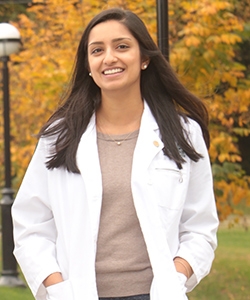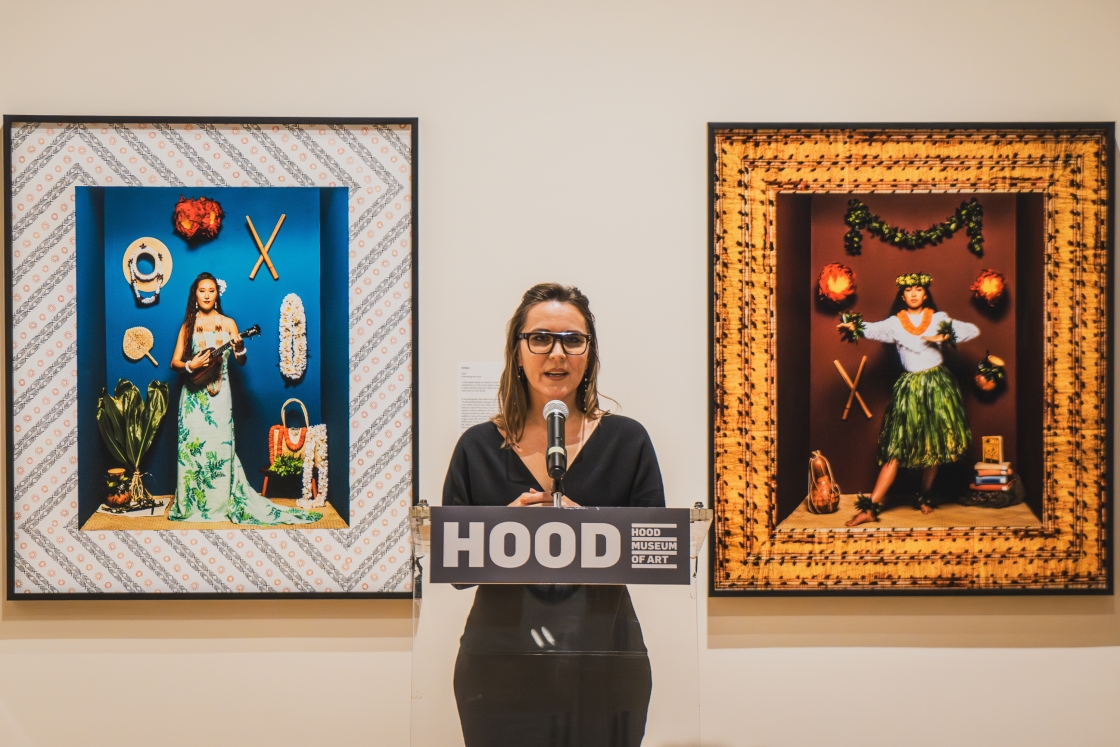Read the full story, published by the Geisel School of Medicine.

How do you define compassion, how do you best teach it, and how do you practice it as a doctor-in-training? Khushboo Jhala, Geisel ’16, has been exploring these questions through a project funded by the Schwartz Center for Compassionate Healthcare. She and five other Geisel students have been awarded Schwartz Fellowships to work with faculty to design and implement projects that introduce compassion-centered care into the Geisel curriculum.
At their first meeting, she and the other Schwartz Fellows started reading literature on how best to teach compassion at a medical school. Based on her research, she came up with two ideas to describe compassion: passive and active empathetic avenues. Passive avenues are where students learn about compassion through readings and seminars in a classroom. Geisel does this through the Profession of Medicine course with Hearts and Minds Grand Rounds where a patient and their caregivers come into a classroom and students learn from the patient what the disease process is like.
For her Schwartz Fellowship, Jhala wanted to create a project where you ”actually take on a patient’s situation as if it were your own. So you go through the experience yourself,“ she says, which she coins as ”active empathetic avenues." Hunger is a major issue nationally and locally in the Upper Valley. So Jhala thought it would be fascinating to do a study on hunger, having students directly experience what it is like to live on a limited food budget.

